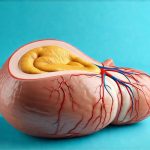Bloating is something most people experience at some point – that uncomfortable feeling of fullness, tightness, and sometimes even pain in the abdomen. Often, it’s easily dismissed as a result of what we ate: perhaps too much gas-producing food, a quick indulgence in salty snacks, or simply overeating. We adjust our diet, maybe cut back on carbonated drinks, and usually, the discomfort subsides. However, when bloating becomes persistent, severe, or is accompanied by other concerning symptoms, it signals that something more than dietary adjustments might be needed. It’s a signal from your body to investigate further – not necessarily panic, but definitely pay attention.
Many assume bloating is just an unpleasant part of life, and while occasional bloat is normal, chronic or severe bloating can significantly impact quality of life. Ignoring persistent bloating could mean missing underlying health issues that require proper diagnosis and management. This isn’t about self-diagnosing; it’s about recognizing when a simple fix won’t cut it and understanding the range of potential causes beyond food sensitivities. It’s about empowering yourself to advocate for your health and seek appropriate medical evaluation if needed, rather than simply accepting discomfort as inevitable. Consider whether functional tests might offer more insight in these cases.
Understanding Chronic Bloating: Beyond Dietary Triggers
Chronic bloating isn’t just about being sensitive to beans or broccoli. While dietary changes are often the first line of defense, they won’t address underlying medical conditions that may be contributing to the problem. The digestive system is incredibly complex, and numerous factors can disrupt its delicate balance leading to persistent discomfort. These range from relatively common conditions like Irritable Bowel Syndrome (IBS) to less obvious issues requiring specific diagnostic testing. It’s crucial to differentiate between occasional, diet-related bloating and a more consistent symptom that demands investigation. The frequency, severity, and accompanying symptoms are key indicators. Preparing for a test can help reduce anxiety around persistent issues.
The gut microbiome – the trillions of bacteria residing in our digestive tract – plays a monumental role in digestion and overall health. An imbalance in this delicate ecosystem, known as dysbiosis, can lead to increased gas production, inflammation, and bloating. Factors like antibiotic use, stress, poor diet, and certain medications can disrupt the gut microbiome’s balance. Restoring healthy gut flora through dietary changes (like incorporating probiotic-rich foods) or, in some cases, targeted supplementation may offer relief, but it’s often a piece of a larger puzzle.
Finally, food intolerances differ from allergies. While food allergies trigger an immune response, intolerances typically cause digestive distress without involving the immune system. Lactose intolerance and non-celiac gluten sensitivity are prime examples. Identifying these sensitivities through elimination diets – carefully removing suspected foods then reintroducing them to observe symptoms – can be helpful, but should ideally be done under the guidance of a healthcare professional to ensure nutritional adequacy.
Common Underlying Conditions
Persistent bloating often points to an underlying medical condition that needs addressing. Here are some examples:
-
Irritable Bowel Syndrome (IBS): IBS is a functional gastrointestinal disorder characterized by abdominal pain, bloating, gas, diarrhea, and/or constipation. It’s not caused by inflammation or structural abnormalities in the digestive tract but rather by disruptions in gut motility, visceral hypersensitivity, and brain-gut interactions. Diagnosis typically involves ruling out other conditions and assessing symptom patterns based on Rome IV criteria. Management usually includes dietary modifications (like a low FODMAP diet), stress management techniques, and sometimes medication to alleviate specific symptoms.
-
Small Intestinal Bacterial Overgrowth (SIBO): SIBO occurs when there’s an excessive amount of bacteria in the small intestine. Normally, most bacteria reside in the large intestine. Excess bacteria can ferment undigested carbohydrates, leading to gas production, bloating, and malabsorption of nutrients. Diagnosis often involves a breath test measuring hydrogen or methane levels after consuming specific sugars. Treatment typically involves antibiotics to reduce bacterial overgrowth, followed by dietary changes and addressing underlying causes like motility issues.
-
Gastroparesis: This condition slows down the emptying of food from the stomach into the small intestine. It can be caused by diabetes, nerve damage, or certain medications. Delayed gastric emptying leads to bloating, nausea, vomiting, and a feeling of fullness even after eating only a small amount of food. Diagnosis often involves a gastric emptying study. Management may include dietary changes (smaller, more frequent meals; low-fat diet), medication to stimulate stomach emptying, and in some cases, surgical intervention. Understanding liver scans can also assist in diagnosis when considering underlying causes.
The Role of the Low FODMAP Diet
The low FODMAP diet has gained significant attention as an effective strategy for managing IBS symptoms, including bloating. FODMAP stands for Fermentable Oligosaccharides, Disaccharides, Monosaccharides, and Polyols – basically, types of carbohydrates that are poorly absorbed in the small intestine. These undigested carbohydrates reach the large intestine where they’re fermented by bacteria, producing gas and causing bloating, pain, and changes in bowel habits.
The low FODMAP diet isn’t intended as a long-term solution but rather an elimination diet to identify trigger foods. It typically involves three phases: 1) Elimination – strictly avoiding high FODMAP foods for 2-6 weeks. 2) Reintroduction – systematically reintroducing individual FODMAP groups, one at a time, to assess tolerance and identify specific triggers. 3) Personalization – developing a long-term dietary plan based on identified tolerances, allowing for as much variety as possible while minimizing symptoms. This diet should always be undertaken with the guidance of a registered dietitian to ensure nutritional adequacy and avoid unnecessary restrictions. Navigating bloating can be easier with professional support.
When to Seek Medical Attention
Knowing when bloating warrants medical attention is crucial. While occasional discomfort can be managed with lifestyle changes, certain red flags indicate that further evaluation is necessary. Don’t hesitate to consult your healthcare provider if you experience any of the following:
- Persistent bloating lasting more than two weeks
- Severe abdominal pain
- Bloating accompanied by unintentional weight loss
- Changes in bowel habits (diarrhea, constipation, or alternating between both)
- Blood in stool
- Nausea and vomiting
- Fever
- Fatigue
These symptoms could indicate a more serious underlying condition requiring prompt diagnosis and treatment. A healthcare professional can conduct a thorough evaluation to determine the cause of your bloating and recommend appropriate management strategies. This may involve physical examination, blood tests, stool tests, imaging studies (like colonoscopy or endoscopy), or breath tests for SIBO. Best practices for testing should be followed to ensure accurate results. Also consider diagnostics recommended for a comprehensive approach. Sometimes, an MRI provides better insight than other imaging options.
Important Disclaimer: The information provided in this article is intended for general knowledge and informational purposes only, and does not constitute medical advice. It is essential to consult with a qualified healthcare professional for any health concerns or before making any decisions related to your health or treatment. Self-treating can be dangerous, and relying solely on information found online should never replace the expertise of a trained medical practitioner.


















